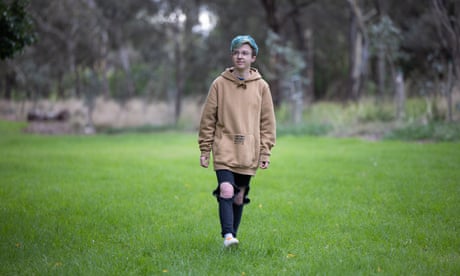- by foxnews
- 23 May 2025
‘Nightmare situation’: Australians turn to youth refuges and camper vans as rental crisis deepens
‘Nightmare situation’: Australians turn to youth refuges and camper vans as rental crisis deepens
- by theguardian
- 22 Apr 2023
- in news

When Danny opened the letter, he was shattered. The two-bedroom home he was renting in the Melbourne suburb of Preston was about to go up by $30 a week.
He would have to move.
Danny, who does not want his last name used, decided to look for a new place with three friends but - after countless applications followed by countless rejections - the 25-year-old is now living in emergency accommodation.
"We went through hundreds of inspections, did all the applications and were just getting nowhere," he said.
"Since I had to leave [my place in Preston] I've been in and out of youth refuges and couch surfing. I've ended up in a homelessness service."
In March, the national rental vacancy rate stood at 1.1%, a slight increase of 0.1% from the month before. At the start of April, there were just 32,814 rental properties available, according to figures by SQM Research.
Australians living on the bottom line are being hit the hardest. Danny lives off jobseeker - with rent assistance, he gets $740 a fortnight. The emergency accommodation costs $480 a fortnight.
The other three friends he was searching with have all gone back to stay with their parents or family friends. Danny didn't have that option.
"Even joining existing sharehouses is way out of my budget," he said. "I've been forced to put myself on the public housing waiting list."
Danny was meant to go back to university where he was studying a bachelor of youth work but has had to put it on hold.
On Tuesday, new data from Proptrack revealed the median time a rental property was listed on realestate.com.au before being leased fell to an equal-record low of just 18 days in March - a week faster than the typical pace pre-pandemic.
It means properties are being rented before people can even inspect them. Cerrita Louw, 23, has been looking for a rental in Melbourne with her boyfriend and a friend since February.
"Our rent is going up at the end of May and we can't afford to stay there any more," she said.
"The average house price was around $450 a week and now it's like $500 a week. It's amazing, just in that small span of time, how much it's going up."
Louw said the trio "are camping" on real estate websites, applying for anything that comes up in their price range, but many of the houses go before they can even inspect them.
"They pop up and then, within a couple of days, they've been leased," she said. "How is that possible?"
A review of GoFundMe fundraisers to help cover the cost of rent between March 2021 and March 2022 showed a 333% increase, from 30 in the same period the year prior to 130.
New data released to Guardian Australia shows in the past 12 months there has been an additional 60% increase in fundraisers referencing these terms, with 208 campaigns launched to help cover rent.
In the past 90 days the company has seen 62 fundraisers mentioning either "eviction" or "evicted" as the housing crisis intensifies, GoFundMe's regional director, Nicola Britton, said.
"When we notice an emerging trend on GoFundMe, it often indicates a much deeper societal issue," she said, adding that stories on the platform were "confronting" and "growing in frequency and urgency".
Crisis accommodation providers say they are inundated. Meg Hamilton from Melbourne City Mission said she was seeing a wave of new people accessing their housing services.
"Since the pandemic, there's just been a huge influx, to the point where it's doubled in the amount of people that we've had coming through our service," Hamilton said.
"It's not just the people that are on Centrelink benefits. It's also the people that are employed that have jobs, have families, that are on a low income, that still can't afford a private rental.
"It's a real nightmare situation."
Hamilton said the answer was building more affordable housing - quickly. In the meantime, those who can are going mobile.
When Emily Ruggero and her partner received a no-grounds eviction for their home in Lake Macquarie at the start of the year, they decided to pack up and take their small family on the road.
"With two young kids and a small business it was hard enough to get a rental pre-Covid, let alone now in this insane market," Ruggero said.
They have been mobile for around a month and are home schooling their children, aged one and five.
"Rental supply was scarce, cost-for-benefits were disproportionate, and, with the bidding war for renting, it didn't make sense to try again," she said.
"We had always wanted to travel and to a degree home-school in the early years, though [we] had decided to enrol our eldest - so we did that, and only weeks later received a no-grounds eviction notice."
They spent thousands fitting out their camper with satellite internet connectivity, as well as lithium 12v power and solar charging. They plan to visit parts of Australia, living in the outskirts of the major cities, while home schooling and working remotely.
"Partly to be close enough to cities to sell into them, and partly to make sure we have enough services, water and phone signal really, and to maintain proximity to hospitals."
- by foxnews
- descember 09, 2016
United Airlines flight returns to Hawaii after concerning message found on bathroom mirror; FBI investigating
United Airlines Flight 1169 to Los Angeles returned to Hawaii after a "potential security concern" aboard the plane. The FBI and police are investigating.
read more


